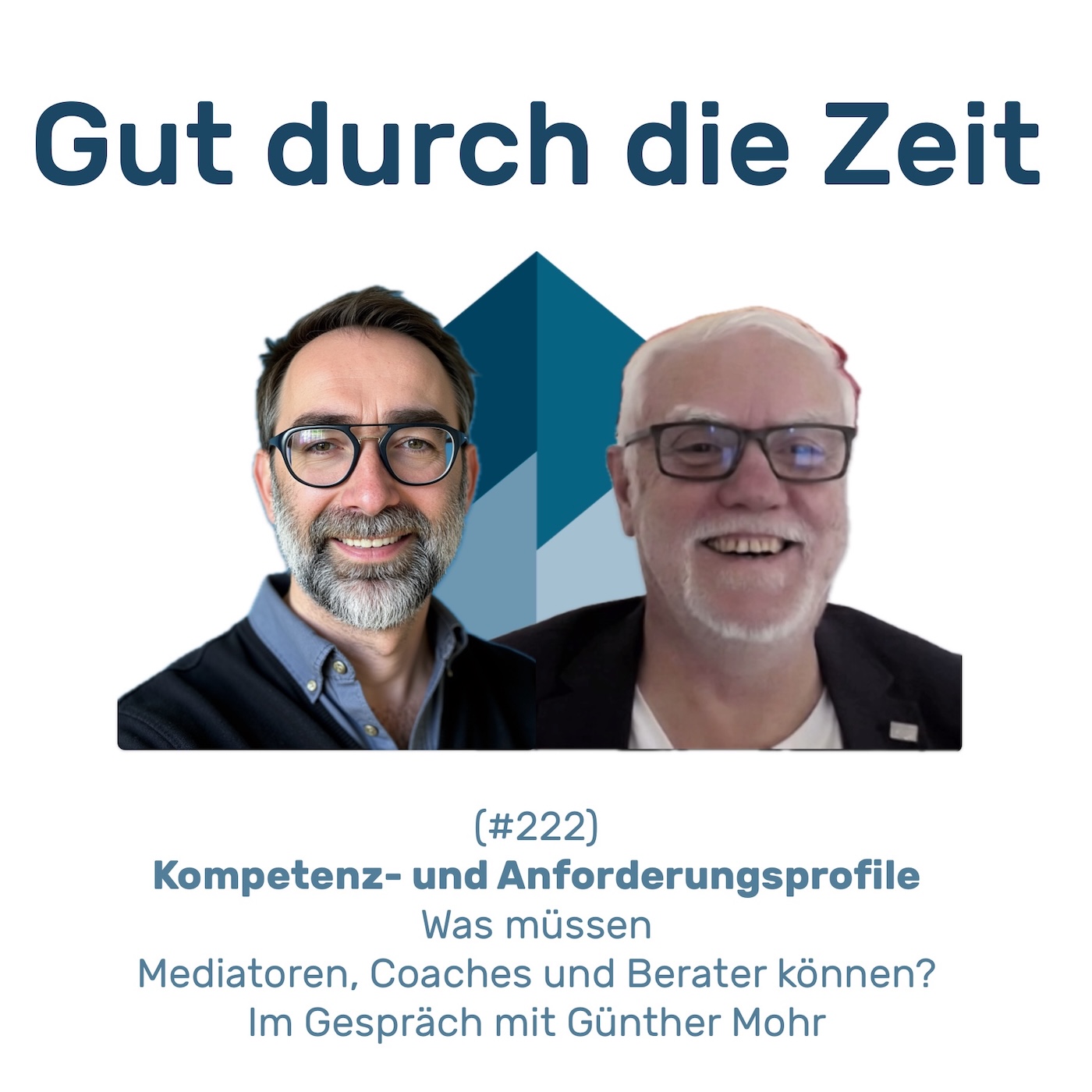INKOVEMA Podcast „Well through time“
#222 GddZ
Competence and requirement profiles for process consulting
What do mediators, coaches and counsellors need to be able to do?
In conversation with Günther Mohr
Graduate economist, graduate psychologist, authorised transactional analyst, senior coach DBVC and BDP, supervisor BDP, mediator, scrum master, Zen teacher, author of numerous specialist books
Contents
Chapter:
0:03 Introduction to the topic of violence
1:33 The path to resilience
4:36 Number of unreported cases and public perception
6:40 Experiences of those affected
9:16 The influence of institutions
11:46 Violence as a phenomenon for society as a whole
14:16 The role of the media
17:12 Mediation as a solution approach
19:52 The need for companionship
22:07 Challenges for those affected
24:29 The silence of the silent ones
25:38 Biographical perspectives
27:36 The role of mediation
34:01 The dialogue with institutions
36:40 Mediators as companions
41:39 Conclusion and outlook
Summary of content
In this episode of the podcast "Gut durch die Zeit", we talk about mediation, coaching and counselling, with a particular focus on the Expertise of consultants lay. I, Sascha Weigel, welcome the renowned economist and psychologist Günter Mohr to explore together what skills and characteristics characterise a successful consultant. We discuss the crucial question of whether a consultant's success should be measured by the number of assignments or the quality of their work, and explore what skills are required to be successful in both self-employment and in-house consultancy roles.
A central topic of our discussion is the Competence profileswhich form the basis for our work in counselling. Günter and I reflect on what basic knowledge about competences entails and how they are perceived by outsiders. It becomes clear that competence is not just knowledge or ability, but also practical application and experience in different contexts. We shed light on how important it is for counsellors to not only possess their competencies in theory, but also to be able to demonstrate them in real-life counselling situations.
We also look at how the traditional education system often imparts knowledge, but not always the necessary skills for practical application. Günter emphasises that skills-based education through practical exercises and experiential learning is crucial. We discuss the importance of not only possessing knowledge as a counsellor, but also developing skills in interaction and communication that are central to process facilitation for clients. Recognising and using "Microprocessing competences" proves to be essential for the ability to carry out effective interventions in counselling sessions.
Another focus of our discussion is the ethical dimensions and the Self-awarenesswhich is an important part of the counselling process. Günther and I discuss how these aspects should be integrated into training programmes to give counsellors the ability to deal professionally with conflicts and various challenges. We also reflect on the demands on counsellors in different contexts and how a deep field competence helps to better serve clients.
Finally, we emphasise the importance of continuous learning and the ability to embrace the unpredictability of counselling methods. The ability to improvise and adapt to new situations is crucial to success as a counsellor. We conclude with the idea that true competence is something that goes beyond mere knowledge transfer and is deeply rooted in experience and reflection.
This episode offers valuable insights for anyone who works in counselling or wants to become one. We invite you to take a more critical look at the topic of competences in counselling and to continuously question and improve your own practice.
Complete transcription




